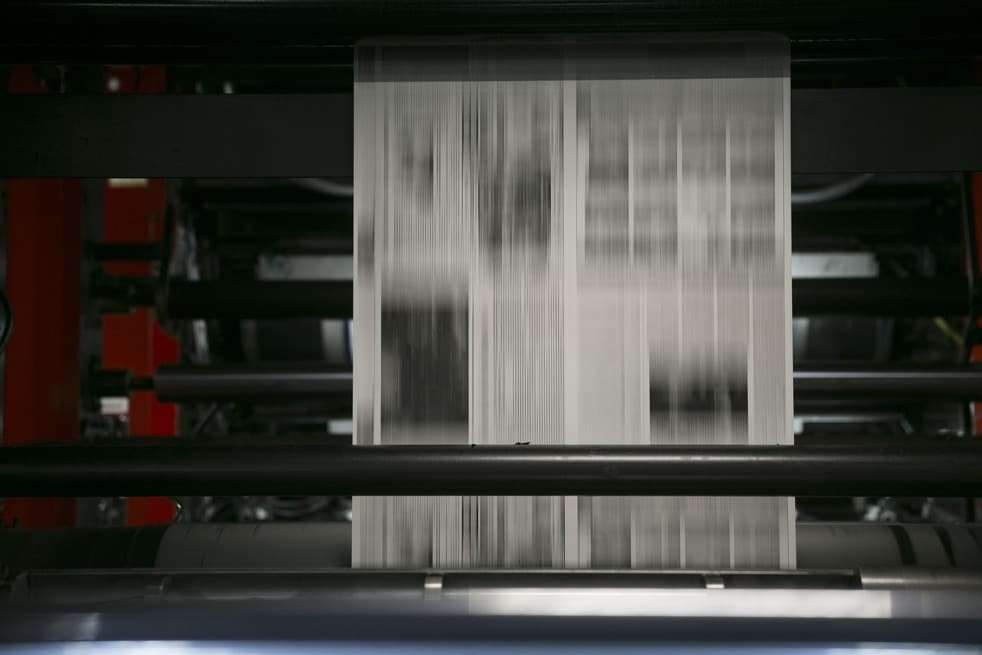The Volokh Conspiracy
Mostly law professors | Sometimes contrarian | Often libertarian | Always independent
The Free Press Clause as protecting all users of mass communications -- responding to the redundancy objection

In my article on the history of the Free Press Clause, I argue that the freedom of the press was seen near the time of the Framing (and near the time of the ratification of the 14th Amendment, as well as in between and largely since) as protecting the right to use the press as technology - everyone's right to use mass communications technology. It was not seen as protecting a right of the press as industry, which would have been a right limited to people who printed or wrote for newspapers, magazines, and the like.
One common response (which just came up on Thursday in some comments) is that arguments such as mine would make the freedom of the press a "constitutional redundancy" (to use Justice Potter Stewart's phrase, from an article in which he was arguing for the "press as industry" interpretation). After all, the argument would go, the Free Speech Clause already protects people's right to communication, in a wide range of media. What does the Free Press Clause then add?
Around the time of the Framing, the answer was clear: the freedom of the press protected speech using the printing press (the mass communications technology that existed at the time), while the freedom of speech protected mostly in-person communications (largely "speech" in the lay sense of the word). St. George Tucker (1803), for instance, discussed the freedom of speech as focusing on the spoken word, and the freedom of the press focusing on the printed:
The best speech can not be heard, by any great number of persons. The best speech may be misunderstood, misrepresented, and imperfectly remembered by those who are present. To all the rest of mankind, it is, as if it had never been. The best speech must also be short for the investigation of any subject of an intricate nature, or even a plain one, if it be of more than ordinary length. The best speech then must be altogether inadequate to the due exercise of the censorial power, by the people. The only adequate supplementary aid for these defects, is the absolute freedom of the press.
(Tucker suggested that other material - such as pictures, symbolic expression, and writing - would be protected as well. Indeed, as I've argued in another article, the "freedom of speech, or of the press" was seen as synonymous with a right to "speak, write, and publish," which included symbolic and visual expression. But since in-person speech and printing were the most common subjects of suppression, and of debates about constitutional protection, Tucker naturally focused on those two matters.)
Likewise, George Hay - who was soon to become a U.S. Attorney, and later a federal judge - wrote in 1799 that "freedom of speech means, in the construction of the Constitution, the privilege of speaking any thing without control" and "the words freedom of the press, which form a part of the same sentence, mean the privilege of printing any thing without controul." Massachusetts Attorney General James Sullivan (1801) similarly treated "the freedom of speech" as referring to "utter[ing], in words spoken," and "the freedom of the press" as referring to "print[ing] and publish[ing]."
And this captured an understanding that was broadly expressed during the surrounding decades. Bishop Thomas Hayter, writing in 1754, described the "Liberty of the Press" as applying the traditionally recognized "Use and Liberty of Speech" to "Printing," an activity that Hayter described as "only a more extensive and improved Kind of Speech." (Hayter's work was known and quoted in Revolutionary era America.) Francis Holt (1812) defined the liberty of the press as "the personal liberty of the writer to express his thoughts in the more improved way invented by human ingenuity in the form of the press." William Rawle (1825) characterized "[t]he press" as "a vehicle of the freedom of speech. The art of printing illuminates the world, by a rapid dissemination of what would otherwise be slowly communicated and partially understood."
Without the freedom of the press, the freedom of speech might have been seen as not covering printing, which could be said as posing dangers that ordinary "speech" did not. Indeed, in the centuries before the Framing, the ability to use the press-as-technology was especially targeted by governments, who found it to be especially dangerous. The free press guarantees made clear that this potentially dangerous technology was protected alongside direct in-person communications.
Of course, over the last several decades, the phrase "freedom of speech" has often been used to mean something like "freedom of expression," and to encompass all means of communication. This might have stemmed partly from technological change. New media of communication such as radio, films, television, and the Internet may fit more naturally in lay English within the term "speech" rather than "press." And once some mass communication technologies are labeled "speech" it becomes easier to label their traditional print equivalent as "speech" as well.
The broadening of the phrase "freedom of speech" might also have been aided by the success of the "freedom of the press" clause in assuring protection for the press-as-technology. Once constitutional law subjects spoken and printed communication to the same legal rules, with no extra constraint on the press, it becomes easier to use a common label to refer to the common protection.
But the legal presumption against interpreting legal writings in a way that makes one clause redundant of another rests on the notion that the authors and ratifiers of those writings would not have written something that was redundant under their understanding. And under the late 1700s understanding, the freedom of the press-as-technology was not at all redundant of the freedom of speech.


Show Comments (0)